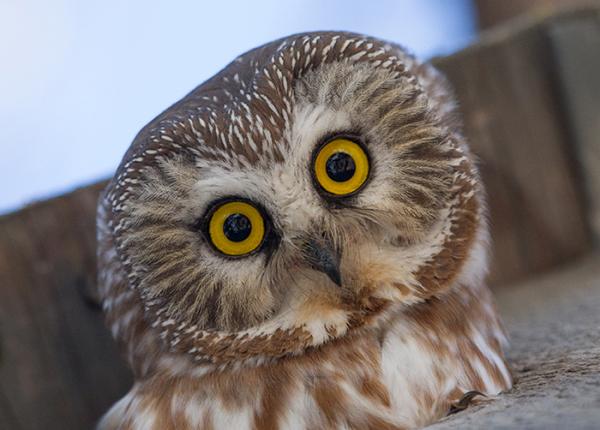- cross-posted to:
- forumlibre
- cross-posted to:
- forumlibre
Came across this fun little article about owl words and French slang.
From TheLocal.FR
This French word can help you express positive feelings toward someone or something, and differentiate different types of owls.
Why do I need to know chouette?
Because it’s a very useful word you can use to describe something that you like or you think is nice or cool. But it’s also the name for a big-eyed nocturnal bird.
What does it mean?
Chouette - roughly pronounced shoo-wet - is the word for ‘owl’ in French, but not all owls.
There is another French word for owl - hibou - which refers to the species that has aigrettes (Plumicorns), which look like ears, on top of their heads, while owls of the chouette category do not.
Within the chouette category, you might hear about la chouette effraie, the barn owl, and la chouette lapone, the great grey owl.
A further fun owl fact is that French also has two different words to describe the noises they make - chuintement refers (among other things) to an owl screech, while hululement is used for the ‘twit twoo’ cry of a barn owl.
But while discussing owls is always fascinating, you are more likely to hear the word chouette in its more slangy form - it can be used as an adjective to describe something or someone that’s ‘great’, ‘nice’ or ‘pleasant’.
While the word is informal, it is not offensive, so don’t be afraid to use it around children (or your in-laws).
Chouette also has a very common usage as an interjection to express satisfaction about something: Chouette! Mon colis est arrivé! (Great! My package has arrived!)
In this way, it is similar to saying ‘ace’ or ‘sweet’ in British English.
There are also expressions that use the word chouette, such as Machin chouette, which you use to refer to someone whose name you can’t remember, in the same way as ‘thingummy’ or ‘thingamabob’ in English.
And perhaps the most pejorative usage of chouette but one that may come in handy occasionally is using it to describe a grumpy old lady or hag, une vieille chouette.
If you’re looking for alternatives you can say c’est super! or cést genial! to describe a situation or outcome you’re happy about. For people, you could say sympa instead of chouette.
As for its origins, the word first appeared in France around the Middle Ages, as the now lost verb choeter, which meant to be/act trendy or smart.
French Renaissance writer François Rabelais was among the first people to use chouette in writing when describing his wife as une belle petite chouette, showcasing how it is definitely a compliment to be associated with the nocturnal bird of prey.
Use it like this
On a passé une chouette soirée - We had a pleasant evening
Il est un chouette garcon - He’s a nice/friendly kid.
Vous allez faire de la randonnée pendant un mois ? C’est vraiment chouette. - You’re going hiking for a month? That’s really cool.


Wow, I had completely forgotten about Caillou. Apparently, the cartoon was imported in France when I was still a child, but already too old to be watching it. I have no idea if it’s reviled here too. I always assumed he got his name from his lack of hair, but I might be wrong.
Funnily enough, the wiktionary page about the weird mnemonic sentence bears a note (with a ⚠️ warning sign!) saying that it is not to be taken as an invitation to throw stones at an owl, whether or not it has lice.
I’m not much familiar with Caillou, but I’ve heard all my friends that have kids or have worked in childcare talk about what an annoying kid he is. It makes sense what his name means now, I always thought it was just some made up name that was easy for kids to say when they can’t speak too clearly yet.
I am glad the wiki is keeping the safety of owls in mind. Very thoughtful! 😆
That’s a crazy coincidence if one non french-speaking person just called a bald character with a french slang for bald head. I would have thought it is french or the name was translated to a pun for the french version.
Caillou was created by a Quebecer illustrator, so not French, but still French-speaking. The publisher for Caillou claims that he was named after a practice of Françoise Dolto of making her child patients give her a little stone as payment, but I’m not 100% convinced, ha ha.
And apparently, the editor for the Caillou books is called “Éditions Chouette”, which is too big of coincidence, so I guess there really is a great international owl conspiracy.
We’re onto something!